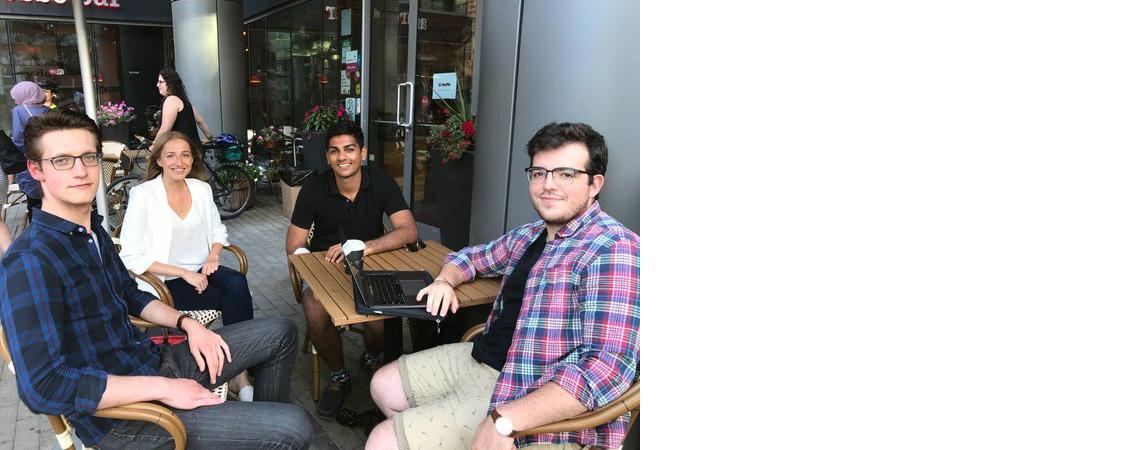U of T law and computer science students launch Toronto chapter of Legal Hackers club
Global movement aims to infuse tech into legal processes to streamline access to justice
By Peter Boisseau
A group of law and computer science students are joining forces to bridge the gap between legal codes and technology.
The students have just formed a U of T chapter of Legal Hackers, a worldwide organization focused on instilling the “hacker mentality” in the practice of law.
“It’s not only the way of the future in terms of the legal profession, but also a really exciting way to get students out of their comfort zone and expose them to something new,” said chapter co-founder Amanda Wolczanski, a second-year law student with a BSc in Chemistry and Political Science from U of T.
“It seems obvious that technology is going to be integrated into the legal profession one way or the other. The Canadian legal community needs to get with the times. Law should be responsive to growth and development in society,” added Wolczanski, who interned at the Structural Genomics Consortium (SGC) this summer.
While the chapter mainly consists of law and computer science students, it’s only a few months old and still growing, and membership is open to anyone with an interest in the intersection of law and technology, said German Guberman, a second-year law student and chapter co-founder.
One of the main goals of the U of T chapter is to collaborate on a project that will apply technology to an access-to-justice problem by streamlining legal processes and reducing wait times, said Guberman.
“For example, we could create an app that would allow people going to the housing tribunal to have their intake forms done and have a registry of their landlord and tenant interactions and payments all on one platform.”
Guberman hopes the project will be the first of many as the chapter creates a new legacy of co-operation between the law and computer science faculties. A web and legal technology entrepreneur, he said he has first-hand experience with the gap between the disciplines.
“I spent a lot of time around computer science because of my work and a lot of time around law because of my studies, and I realized there was no channel between them,” he said about his motivation to start the chapter.
“We’re trying to bridge that gap between two excellent faculties and create a community that for years to come will have a lot of ongoing joint projects involving students and faculty.”
Professor Gillian Hadfield, the club’s faculty adviser at the law school, says she’s excited with this Toronto launch. “I’m especially impressed that this is a student initiative, crossing between law and computer science. Legal Hackers has had a big impact globally, spurring much needed change in law – to promote access to justice, to better align law with modern technologies – and it’s great to see Toronto joining the movement.”
Social media, blockchain systems and cryptocurrencies are a few of the many areas where the law is not keeping up with society, said chapter co-founder Govind Mohan, a software developer and fourth-year undergraduate completing his degree in computer science, philosophy and economics.
“Law is the code that governs our relationships and we’re trying to figure out ways that tech can be included in that code.” Mohan said another key goal of the chapter is to create a distinguished annual global legal hackathon at U of T that rivals the best such events in the world.
“We want to establish something that successive generations of students and faculty can build on.” Computer science faculty adviser Professor Syed Ishtiaque Ahmed praised the students for their efforts to bring two renowned U of T disciplines together.
"There has always been a big gap between law and computing, and it has become more important than ever to think seriously about this intersection,” said Ahmed.
“The club creates a huge opportunity for innovation and creating a social impact." Fellow computer science faculty adviser Professor Mathew Zaleski said the club represents an ideal collaboration.
“It is imperative to study the impact of computerization on society itself,” said Zaleski. “The law is a key tool for how society moderates the impact of technology on people – and there are no better partners to study computers and society than the CS and law departments.”
